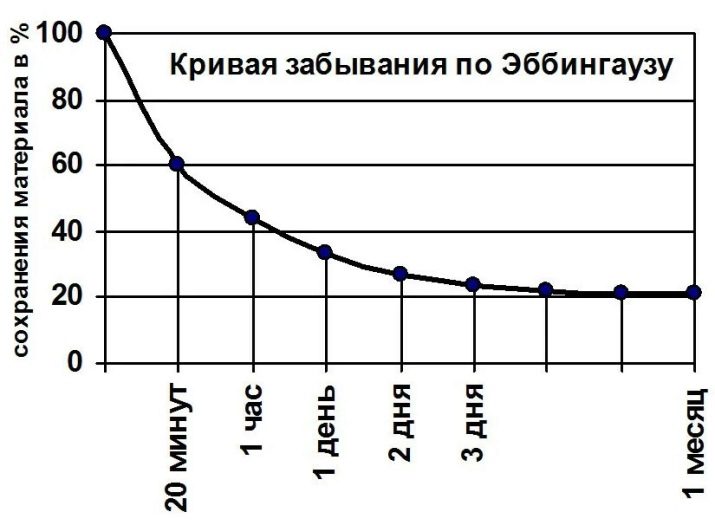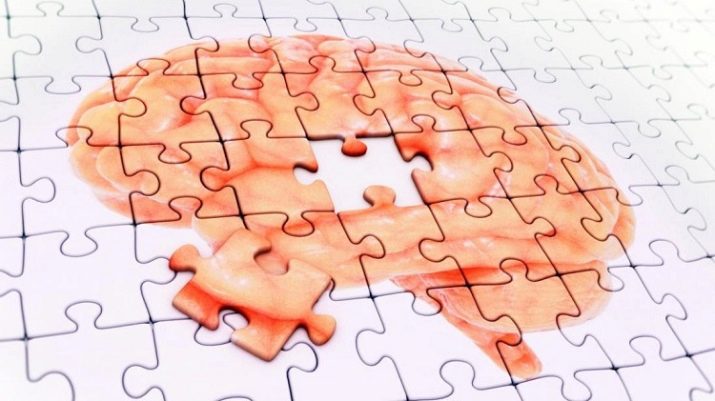Forgetting: Definition, Causes, and Prevention

If all the knowledge acquired during a person's life were preserved in his head, then human consciousness would not be able to function normally. The brain saves itself by periodic "shutdown" and "reboot".

Definition in psychology
Forgetting is a natural process, which consists in complete or partial loss of previously perceived information and manifests itself in two forms:
- the inability to recognize and remember;
- distorted recollection or recognition.
Forgetting is the loss of certain information. The process can be characterized by a decrease in the strength of traces of the material, its disappearance without a trace, or the loss of connection between individual elements, leading to data distortion.
Psychologists offer two classifications, compiled according to a certain criterion:
- filtering irrelevant information by partially or completely removing them from memory;
- temporary and long-term manifestation of displacement of traces of information.
There is also a classification of the reasons for forgetting:
- displacement of data at the unconscious level;
- amnesia is a form of mental disorder;
- suppression - the conscious displacement of certain events or actions from the memory;
- extinction and distortion of unclaimed knowledge;
- interference - mixing new knowledge with old memories, interfering with memorization and leading to partial forgetting.
German psychologist Hermann Ebbinghaus revealed the patterns of the disappearance of meaningless material from memory. The graphic forgetting curve reflects the memorized information as a percentage at a certain point in time.
Words that do not evoke any semantic associations are quickly forgotten.After the first hour after memorization, about 60% of the material disappears from the head. After 9 hours, a person remembers 36% of the information, after 6 days - 25%, about the same or slightly less information initially learned remains in the head after a month.

Forgetting mechanism
Over time, any information is forgotten to one degree or another. The displacement of its traces from memory occurs in order to preserve the brain structures. The forgetting process usually takes place in the brain with the participation of nerve cells. Excessive forgetfulness can indicate various brain disorders or overwork. Often, memory gaps are caused by an adaptive process that the body needs.
There are certain laws of forgetting. Conclusions and general statements are remembered better than individual details. Mechanically memorized material is quickly forgotten. Meaningful memorization slowly displaces information from memory.
There is complete and partial, long-term and temporary forgetting.
- When knowledge is completely erased from memory, the subject cannot reproduce and even recognize some data.
- If an individual has partially forgotten the material, then he is able to recognize and reproduce it with errors or it is good to recover only a certain fragment in his memory.
- With prolonged forgetting, a person does not succeed in recovering the material in his memory partially or completely. He is unable to remember anything for a long time.
- Often a person, for some reason, cannot reproduce the information at the moment. But after a while, the necessary material is remembered.
With complete forgetting of information, the breakdown of nerve connections in the brain occurs. Temporary displacement of traces is due to their inhibition, and prolonged forgetting is due to their extinction. The laws of forgetting are such that strong experiences and traumatic memories that pose a threat to mental health are erased from memory. A protective mechanism is triggered. In this case, the main motivation of the brain is to get rid of negative information.
The lack of reinforcement of the learned material leads to the extinction of the skill. The longer and more accurately a person uses the learned information, the longer it will not be deleted from memory. The frequency of application of knowledge affects the mechanism of forgetting.

Causes
Psychologists identify a number of factors affecting the repression of various events from memory.
- The most common reason for forgetting is the lack of demand for information. Students in secondary and higher educational institutions do not retain in their memory all the material received over a long period of time. The acquired knowledge and skills that a person uses are remembered. The rest of the data that is not of interest to the subject or is not used are erased from memory.
- The age of the individual influences the forgetting process. Infantile amnesia is common in babies. People cannot remember the events that happened to them before the age of three. Experts associate this phenomenon with a limited vocabulary and a lack of experience in the baby. In addition, the child does not yet feel like a person. The most intensive process of memory impairment occurs after the onset of menopause. It is difficult for the elderly to remember new information, to reproduce recent events. They also tend to forget what they have to do. It is especially difficult to face new circumstances, unusual actions. Elderly people take a long time to master them. Psychologists recommend that they use various aids and use mnemonic techniques.
- Interference may be the cause. In this case, the previous or subsequent events interfere with the memorization of the necessary information. For example, a student is preparing hard for an exam. And suddenly sad news is reported to him. As a result of proactive interference, newly acquired knowledge is partially displaced from memory.Retroactive interference is learning new material immediately after learning another skill. For example, a student needs to learn two subjects at once. He must pass two tests in a day. This will affect the quality of knowledge. When passing similar disciplines on the same day, interference occurs only during the acquisition of the first skill. The study of the second subject deepens the knowledge of the first discipline.
- The speed of forgetting is influenced by the absence of a break in the moments of activity. The inhibition of neurons in the brain is associated with human fatigue. Even a short break during study or work improves the memorization process. Timely rest helps to restore memory in full.
- Various diseases of the central nervous system, brain injuries and bruises also contribute to the erasure of knowledge. In case of loss of functions of some tissues, informative blocks may disappear from memory entirely.

A warning
There are the following patterns of memorization:
- information located at the beginning or end of the text is well fixed in memory, and the middle part is usually forgotten or poorly remembered;
- unusual, original and funny material easily settles in the head;
- information that affects the emotional sphere or arouses great interest, memorized easily and firmly.
Repetition is an important tool against erasing information from memory. The process of forgetting can be prevented by repeating the material at the initial stage of its development, because at first knowledge is quickly lost. When the educational material is almost forgotten, it is already difficult to recall it. The Russian teacher KD Ushinsky compared this process with a building, which is easier to fortify immediately than to constantly repair the ruins later. New information should be repeated immediately, then less time will be required for repetition and it will be easier to reproduce it.
Applying the acquired knowledge in practice also prevents the forgetting process. The student who is constantly solving problems or doing exercises will firmly fix specific rules in his memory.









